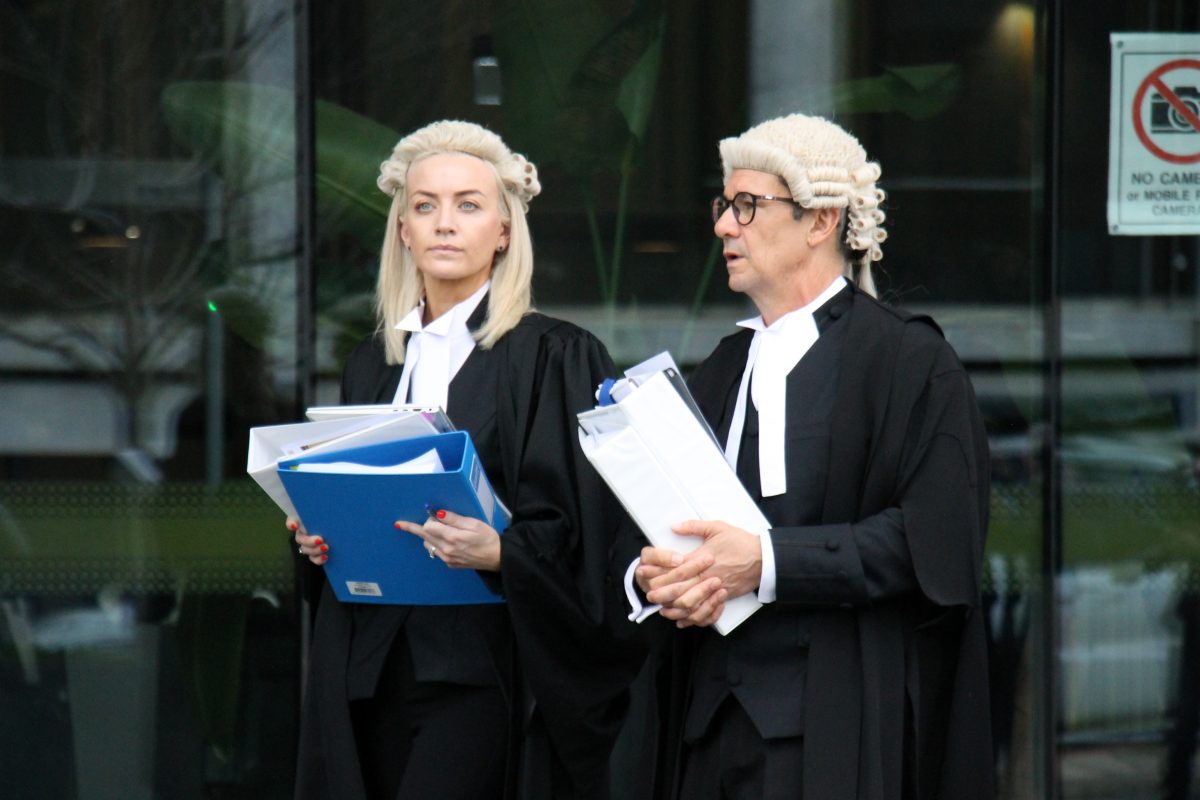
Director of Public Prosecutions Shane Drumgold SC (right) has presented 137,000 documents to the Board of Inquiry. Photo: Albert McKnight.
The chairman of the Board of Inquiry into the handling of the Bruce Lehrmann case has expressed his disbelief that he still hasn’t received the brief of evidence prepared by police for the prosecution’s case.
The Australian Federal Police (AFP) was called on to produce all subpoenaed documents relating to the case or provide specific legislative reasons why they couldn’t.
It comes after counsel assisting the inquiry Erin Longbottom KC told a preliminary hearing on Thursday (30 March) a number of documents remained “outstanding” two months after the first subpoena was issued.
She said while the AFP had produced some documents, many were redacted or referred to documents that the AFP’s legal counsel said couldn’t be produced because of certain legislation.
“This is a continuing feature,” Ms Longbottom submitted.
“We’re some three weeks later [from a certain request] and there’s some over-arching specificity lacking [over why certain documents can’t be produced].”
Board of Inquiry chairman Walter Sofronoff KC questioned why he wasn’t given access to certain phone, audio and video records.
He noted that under the terms of reference, he was to consider the evidence gathered by police and given to Director of Public Prosecutions Shane Drumgold SC, the decisions made in light of the evidence and the nature of it.
Mr Sofronoff was particularly concerned about the brief of evidence created by police and given to Mr Drumgold.
He questioned how he could achieve the inquiry’s aim if he wasn’t given access to all documents or given the specific legislative reasons why he couldn’t access them.
“It’s a little hard for me to look into that if I don’t receive that brief or the brief sent to the DPP,” Mr Sofronoff said.
“It would be nice to know [which documents I don’t have access to] so I’m not anxious something is being overlooked.”
Ms Longbottom also pressed the AFP’s legal representative on why it was taking the agency so long to produce certain documents.
As it is an external ACT body, the AFP falls under different statutory requirements than others being investigated in this inquiry, meaning it isn’t bound by timeframes set out in subpoenas.
Mr Sofronoff asked its legal representatives to produce documents in a timely fashion as he is meant to wrap up the inquiry by 30 June.
“I want to get a sense of where the AFP is standing … what’s left to be produced and the date by which production will be refused or produced,” he said.
“The AFP has taken the attitude correctly that the subpoena can’t fix a time.”
Australian Government Solicitor Katherine Richardson SC, representing the AFP, noted that a large amount of evidence needed to be reviewed and that it was a “very complex task”.
“A huge amount of progress has been made and will be made in a short period of time,” she said.
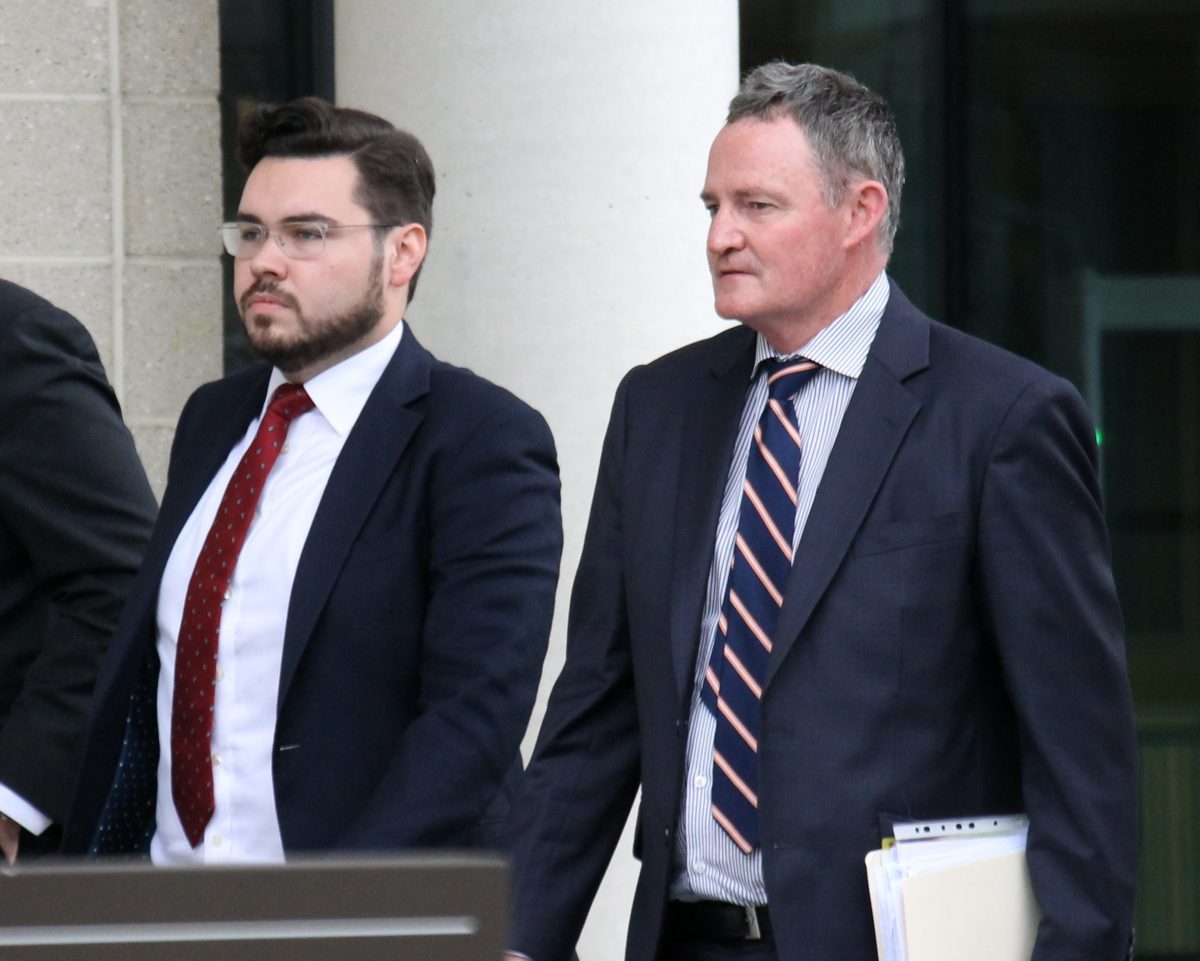
Police have been accused of speaking with Mr Lehrmann’s barrister Steven Whybrow (right) during the trial. Photo: Albert McKnight.
Mr Sofronoff questioned how one request, in particular, had been treated.
“[The approach taken is] somebody’s going to review video recordings … and decide whether parts are useful to me or not … and withhold it if that person decides if it is not useful to me,” he said.
“I have to have what Mr Drumgold had and I have to have what police had.”
Ms Richardson submitted there were 100 GB of video recordings to sift through and the decision had been made not to “swamp the inquiry”.
“If [the inquiry] wants all that material, we can take that on board,” she said.
Mr Sofronoff also pushed for clarity on a possible recording of a phone call between Bruce Lehrmann’s barrister Steven Whybrow SC and Detective Superintendent Scott Moller.
“An audio recording and diary entry will be coming,” Ms Richardson responded.
Mr Sofronoff ordered he wanted all documents to be produced, and the specific reasons why some couldn’t be produced, by 11 April.
“The sky doesn’t fall if you’re a day or two late … but I need certainty,” he said.
In a statement issued late this afternoon, the AFP said any suggestion it had refused to hand over the full brief of evidence was false.
It outlined it had produced the brief on 27 March “to the extent permissible by law”, saying statutory provisions preventing the production of certain material existed under the Telecommunications Interception Act 1979 (Cth), the Evidence (Miscellaneous Provisions) Act 1991 (ACT) and the Crimes Act 1900 (ACT).
“As discussed at the Directions Hearing on 30 March, the AFP is proactively producing material to assist the Board of Inquiry with its important work,” the statement concluded.
The same direction was also made for material from Mr Drumgold and the Victim of Crimes Commissioner (VCC) Heidi Yates.
Mr Drumgold’s representative said some of their evidence could be bound by legal privilege.
Mr Sofronoff said some of those documents could relate to advice Mr Drumgold gave to the AFP, meaning the AFP could waive that right and give Mr Sofronoff access to the material.
He questioned when Mr Drumgold would decide which documents he would be unable to produce.
“I’m not saying for a moment he doesn’t have a proper claim [for legal privilege] but I need to know what it is [so I can deal with it],” he said.
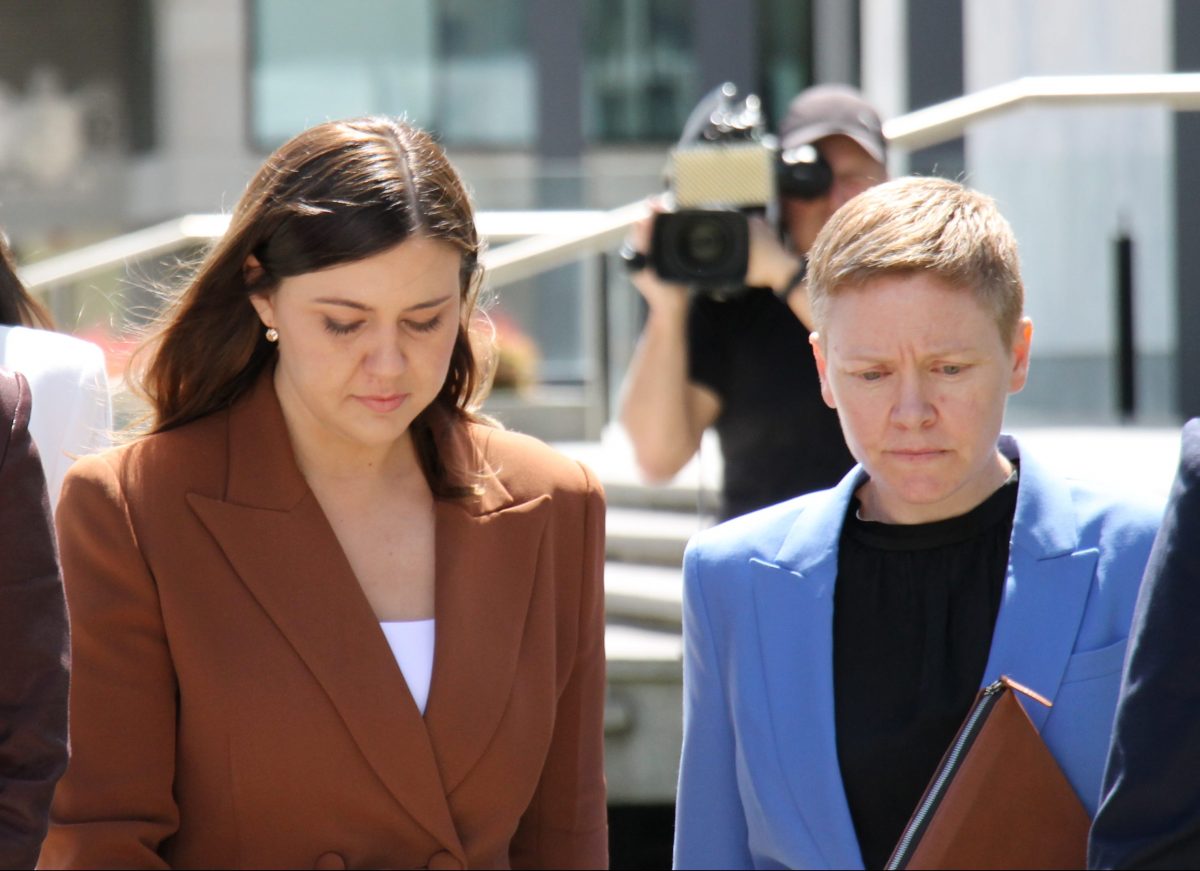
The inquiry will also examine the conduct of Victims of Crime Commissioner Heidi Yates (right) during the case against Bruce Lehrmann. Photo: Albert McKnight.
Non-publication orders on the material produced were altered to allow the AFP, DPP and VCC’s offices to examine material over which they could waive privilege.
Another preliminary hearing is set for 17 April, with public hearings scheduled to begin on 27 April.
The inquiry was established after a letter from Mr Drumgold to ACT Policing Chief Police Officer Neil Gaughan became public in which Mr Drumgold complained he’d been pressured not to pursue the case by senior police.
Mr Lehrmann’s trial over the alleged rape of Brittany Higgins ended in a mistrial and was later dropped with no findings against him.
Mr Lehrmann maintains he is innocent.













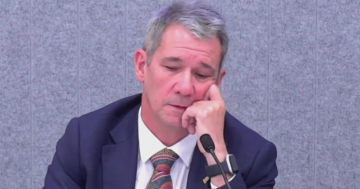
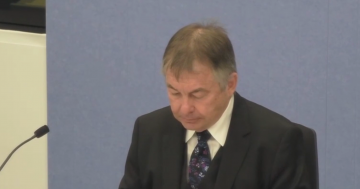
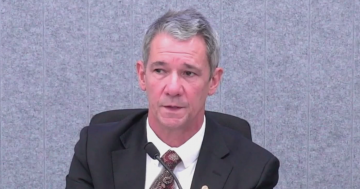


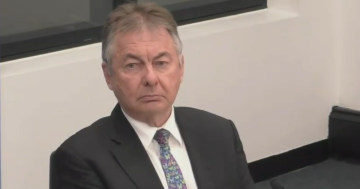
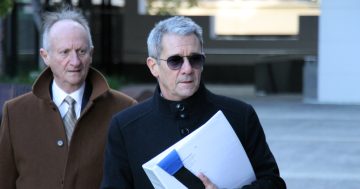

98 people, extremely unlucky to be caught, here in Canberra you never see police cars and you never… View